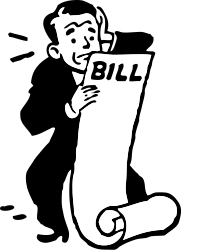 (Updated on 10/30/19 with link to the forum slide presentation)
(Updated on 10/30/19 with link to the forum slide presentation)
By Alice Waugh
The idea of a residential property tax exemption that would shift the burden of taxes to owners of more expensive homes was met with opposition at an October 15 public forum.
The event was the second of two public forums hosted by the Property Tax Study Committee, which was formed in the wake of fears that some Lincoln residents would not be able to afford the tax increase resulting from the $93 million school project. At its first forum in June, the group presented two options it was studying: a means-tested “circuit-breaker” program and a residential tax exemption program.
Sudbury, Concord, and Wayland have enacted local versions of the state circuit breaker program for homeowners over 65. If they have lived in their town at least 10 years and meet certain income and asset thresholds, they pay no more than 10% of their income for property taxes. Renters who are paying more than 25% of their income on rent are also eligible under the state program, though the three neighboring towns don’t have this provision.
If Lincoln were to adopt a similar program, it would most likely follow the pattern of the three other towns by basing it on the existing state circuit-breaker program and funding it through a small hike in the local tax rate, capped at a certain amount such as 1%. Such a move would require Town Meeting approval preceded by special legislation, a multiyear process.
Alternatively, passage of a bill now in the state Senate would require only Town Meeting approval for a local plan, but “this would probably prevent us from customizing the law in any way,” and it would not benefit those under 65, said Selectman Jennifer Glass, the committee member who made the October 15 presentation.
The other option under consideration would make property taxes even more progressive than they already are by making a proportion of each property’s value exempt from taxes, with no consideration of the owner’s income or assets. Fourteen cities and towns in Massachusetts offer a program like this, but most have either a large commercial tax base, or many expensive vacation homes, meaning the benefit accrues to year-round residents.
In making their annual recommendation to the Board of Selectmen when setting the tax rate each year, the assessors “were quite adamant this was not meant for us,” said former Selectman Peter Braun.
The Board of Selectmen already has the power to create a residential exemption when it sets the tax rate every year, but has never done so. Ellen Meadors noted that she and other assessors felt such a move shouldn’t take place without input from the town as a whole.
Another possibility is creating a local circuit-breaker program that would also apply to younger homeowners, since special legislation would be required in any case. “We have thought of a few permutations) that we could try out with the state, but the state is very careful when comes to tax policy about setting precedent and not rocking the boat statewide,” Glass said.
“This brings us back to the big question: who are we trying to help, and what are we trying to achieve?” said Glass, adding that the town could choose to adopt either, both or neither of the two options.
Several forum attendees who packed the Donaldson Room in Town Hall objected to the idea of a residential tax exemption. “Every home above the [exemption] break point will have taxes go up, and the property value will go down,” one resident said “The bar will be reset and we’ll be right back where we are today.” The measure would not have the intended effect of promoting economic diversity and could very well benefit property owners who don’t need such tax relief, he added.
As a result of the school bonding, taxes went up this year by an average of 12.3%, Glass said. The tax rate for fiscal 2020 is $15.36 for every $1,000 of assessed home value; $1.95 of that $15.36 is paying for the school project.
“The town just took this vote on new school. Had we known there was another potential [tax hike] provision that gained more momentum… that vote night have turned out differently,” a resident said.
Glass assured the audience that there was “no way we would implement this unless the overwhelming majority of the town wanted it… message heard.”
Regardless of who pays how much, tax revenue has to rise to pay for the school. “It seems like we’re being taxed out of town, and it’s heartbreaking to me because I love this town,” said one resident to a chorus of “hear, hear!”
The property tax proposals will be discussed at the State of the Town meeting on November 2 at 9:30 a.m. Also on the agenda: zoning changes proposed by the South Lincoln Planning and Implementation Committee that would encourage denser housing and mixed-use development in South Lincoln. Such measures could broaden the commercial tax base and benefit middle-income homeowners, “addressing some of the very issues we’ve talked about tonight,” noted SPLIC co-chair Gary Taylor.
Leave a Reply